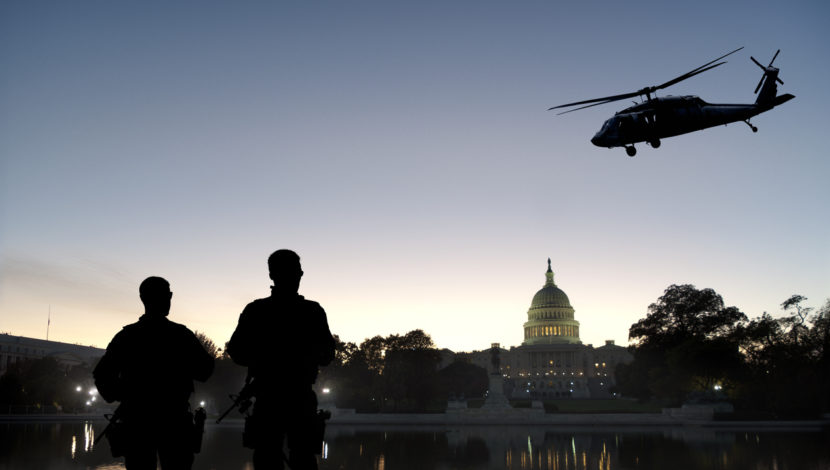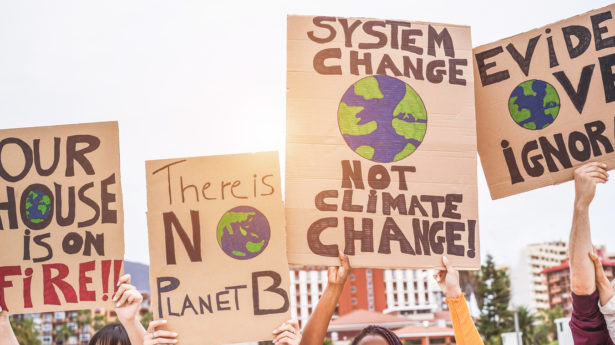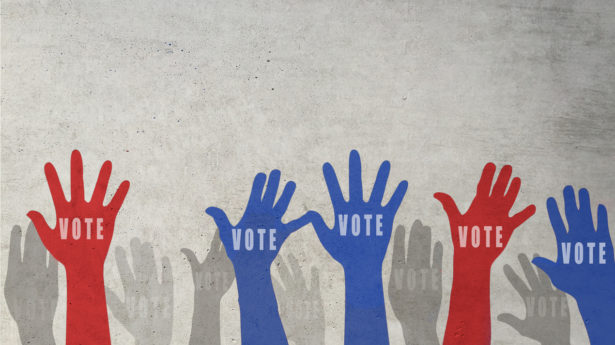The Unitarian Universalist Service Committee advances human rights through grassroots collaborations.
After 9/11, Has The Creation of DHS Really Made Us More Secure?

By Rev. Mary Katherine Morn on September 11, 2020
There will be opportunities for silence, remembrance, tribute. All of these are fitting ways to observe the terrorist attacks upon this nation 19 years ago today. We fall silent to make room for the enormity of loss. It might be easier to look away, but remembrance ensures that we do not pretend it is otherwise. And tributes are a way to honor and remember those lost, and those who lost much.
We can most honor the dead and those harmed by the attacks, though, with our honest reflection. Interrogation is an important way to observe a tragedy that took the lives of so many. What have we learned? How have we changed? What is needed now?
On my mind is the impact of the creation of the Department of Homeland Security (DHS) a little over a year after September 11, 2001. A reorganization is not an uncommon response to tragedy. The formation of this massive new umbrella department, which absorbed 21 existing agencies, was said to be a means of preventing a repeat of the perceived failure of coordination many blamed for the “success” of the attacks.
Those sympathetic with the change justify the expense and reach of the new department by correlating its existence with the fact that the U.S. has not experienced another massive attack in the years since its founding. But many others have offered critical technical evaluations of DHS. Former directors are expressing deep concerns about overreach—the way the current administration is stretching the purpose of DHS to justify teargassing protesters and kidnapping people off the streets of Portland—all ostensibly in the name of protecting federal property. Many are questioning the vast expansion, especially under the current administration, of resources dedicated to DHS. As of the most recent Congressional appropriation, the department carried a $50 billion annual price tag, with enough taxpayer dollars set aside to confine more than 45,000 people in Immigration and Customs Enforcement (ICE) detention facilities at a time.
My issue, my deep concern, relates to how the establishment of a department for Homeland Security fundamentally shifts the principle of home and the purpose of security. Even before the current administration took dog whistling to a new level of permissive racist nationalism, the Department of Homeland Security created a structural, weaponized security force reinforcing a vision of home and threats to home steeped in white supremacy. The push for a border wall is not only a function of one man’s supercharged hate and ego; it is really a logical extension of the way our government’s response to 9/11 fundamentally shifted how we see our borders and the people who are seeking refuge of one kind or another in the United States.
I’m not making a case for any idealized, good old days of Immigration and Naturalization Services (INS), the precursor to ICE. UUSC was founded, in part, out of the need for reform of U.S. and international responses to refugees desperately seeking asylum during World War II. Still, moving the function of immigration services out of the Justice Department and into Homeland Security, fundamentally redefines immigration as a threat. And homeland as a construct to be protected from it.
Now, eighteen years since the creation of DHS in 2002, we are witnessing some of the most dramatic consequences of policy decisions arising from tragedy. We have seen DHS separate families and send away unaccompanied children without a hearing; U.S. border guards arrest people for delivering life-saving aid to migrants in the desert; ICE continue to detain and deport people in the midst of a global pandemic, even as safe and compassionate alternatives are readily available.
A department that promised to keep people safe has grown into a threat to our values and our liberties. Lost in the redefinition of “security” after 9/11 was a recognition that safety does not flow from exclusion and detention. To the contrary, human rights and civil liberties are vital to our collective security—including by protecting us from government abuses.
Please join UUSC as we work to uphold the rights most at risk under this incarnation of DHS, including the ability to seek asylum from persecution, to express dissent against injustice, and to live in freedom with one’s family and loved ones. The memory of our national tragedy should spur us not to double down on past mistakes, but to take up the work that is needed for genuine security—asylum from harm and the equal protection of our rights.
***
About UUSC: Guided by the belief that all people have inherent worth and dignity, UUSC advances human rights globally by partnering with affected communities who are confronting injustice, mobilizing to challenge oppressive systems, and inspiring and sustaining spiritually grounded activism for justice. We invite you to join us in this journey toward realizing a better future!
Photo Credit: iStock – ninjaMonkeyStudio

